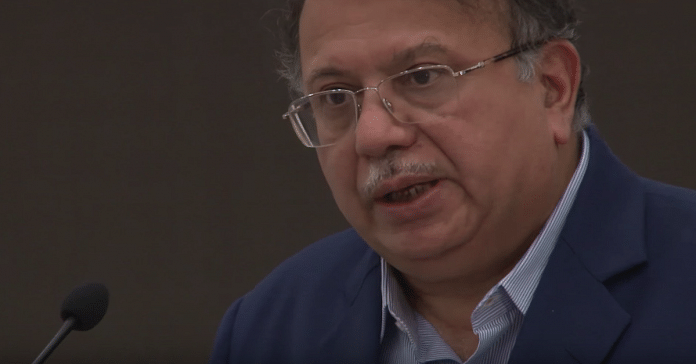Justice A.P. Shah also says 4 judges who have questioned Chief Justice of India didn’t breach any code of conduct and had instead upheld constitutional values.
New Delhi: Former Delhi high court chief justice A.P. Shah has described as “unfair” the Centre’s reported blocking of Uttarakhand chief justice K.M. Joseph’s elevation to the Supreme Court.
He added that Joseph, who set aside the imposition of President’s Rule in Uttarakhand by the Modi government two years ago, was the “most deserving judge” to be recommended by the Supreme Court collegium for appointment to the apex court.
“The government blocking his appointment…will be the real test for the judiciary to exercise its independence,” Shah said.
Delivering the first B.G. Verghese Memorial Lecture Friday, Shah also weighed in on the recent crisis in judiciary stoked by resentment among some Supreme Court judges with Chief Justice of India (CJI) Dipak Misra’s functioning. Earlier this year, four judges of the Supreme Court had held an unprecedented press conference where they raised concerns over case allocation by CJI Misra.
Terming the CJI the “first among equals”, Shah said Chief Justice Misra’s decision to keep senior judges away from important cases was “surely strange and something to be questioned”.
He suggested developing “robust institutional practices” to ensure the power of CJIs as the ‘master of roster’ was exercised in a fair and transparent manner.
Significantly, he referred to CJI Misra and his predecessor J.S. Khehar’s handling of three cases as having led to the crisis – the ones pertaining to the alleged suicide of former Arunachal Pradesh chief minister Kalikho Pul, irregular medical college admissions, and the death of special CBI judge B.H. Loya.
Shah also defended the four judges – J. Chelameswar, Ranjan Gogoi, Kurian Joseph and Madan Lokur – against criticism for going public with their allegations. “They did not breach any code of conduct in addressing the media. Instead, they upheld constitutional values,” he added.
A greater rift would have ensued, he added, had the four chosen to take their grievances to other Supreme Court judges or the President.
“They could have, as a last resort, gone to the President of India, but I am relieved that they did not, for, at any and all costs, the independence of the institution must always be maintained, and the executive and the legislature should be kept out of judicial affairs,” he said.
A vocal critic of the collegium system for judicial appointments, Shah said it was time to take a “relook at the opaque system that the judges have constructed for themselves”.
Justice Shah expressed hope that Gogoi, next in line for appointment as CJI, will bring in changes. “… He must use his time to change these processes.”
He stressed his views must not be construed as mere criticism. “If anything must happen as a consequence of this unfortunate incident, it is reform,” he said.



